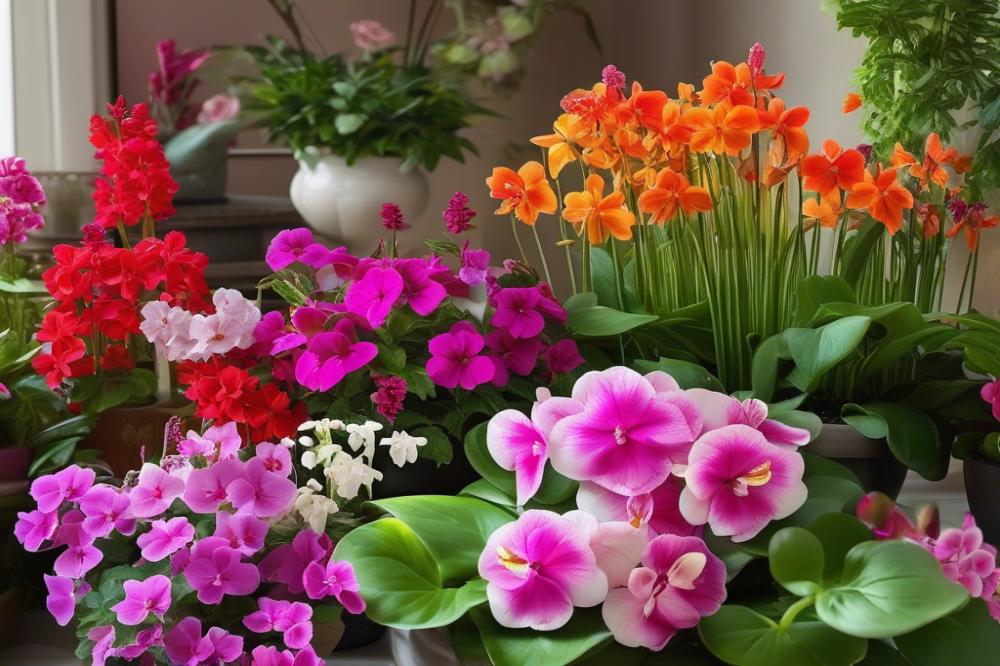Introduction
Creating a beautiful rose garden can feel like an exciting endeavor. However, gardeners often face serious challenges posed by deer and rabbits. These animals find roses irresistible and can damage or completely destroy them in no time. Losing roses to hungry critters can be frustrating. A few nibbles may not seem like much, but unchecked, they can lead to much larger problems.
It becomes crucial to protect roses, ensuring their optimal growth and stunning beauty. Healthy roses not only enhance the garden but also uplift spirits and invite admiration. Thus, taking steps to deter these pests is essential for any serious gardener. There are various methods available to keep deer and rabbits away from your prized blooms.
Using deer repellents and rabbit deterrents can effectively minimize the risk. Garden fencing can also create a physical barrier, making it difficult for these animals to access your flowers. Other tactics involve scent repellents to mask attractive smells, while companion planting can confuse or deter pests naturally. Additional options like protective netting, noise deterrents, or motion-activated devices offer more creative solutions. Lastly, understanding how natural predators impact garden dynamics can also play a role. Moreover, choosing the right plant selection can make a significant difference. Experimenting with different techniques may yield the best results, giving every gardener a chance to enjoy their roses without worry.
Understanding Deer and Rabbit Behavior

Deer and rabbits are attracted to roses for several reasons. These animals primarily seek out tender and nutritious plants. Flowers, especially roses, provide the perfect combination of flavor and texture.
Rabbits tend to munch on the young shoots and flower buds. They prefer soft greens and delicate plants. Deer, on the other hand, often browse on leaves and stems. Their feeding habits are shaped by what’s available in their environment.
Familiarity with their preferences allows you to develop effective strategies. For instance, knowing that deer gravitate toward fragrant plants can help you use scent repellents to your advantage. In contrast, rabbits are more likely to be discouraged by various deterrents, including those made from spicy ingredients.
Taking an active role in plant selection will also play a significant role. Opting for species that deer and rabbits find less appealing can help protect your roses. Some gardeners use companion planting to place flowers beside plants that deter these animals.
In addition to plant choices, protective measures can add another layer of defense. Garden fencing acts as a solid barrier against both rabbits and deer, but remember to keep it tall enough for deer. Using motion-activated devices can startle animals and disrupt their dining plans. Similarly, noise deterrents can create an undesirable dining atmosphere.
Exploring nearby natural predators may give you additional insight. The presence of hawks or foxes, for instance, might keep deer and rabbits at bay. Incorporating a mix of these strategies will yield the best results in maintaining a beautiful rose garden.
deer repellents and rabbit deterrents

Finding effective ways to keep deer and rabbits away from your roses can feel challenging. Many commercial deer repellents are available in garden centers. They typically use strong scents or tastes that animals dislike. Spray options offer easy application, while granules require a bit more effort but last longer. Look for products that specifically mention they are safe for use around flowers.
Rabbit deterrents often include similar scent repellents. These are formulated to confuse or repel, making your roses less appealing. Additionally, planting specific flowers that rabbits dislike can naturally fend them off. Companion planting involves using strong-scented herbs and flowers that deter these critters while enhancing your garden’s beauty.
For those seeking natural alternatives, homemade solutions are an excellent choice. A mixture of garlic, hot pepper, and water can create a spicy spray. Applying this every few weeks will keep your roses safe. Mixing eggs with water is another unique remedy. This produces a smell that many animals find off-putting. Once applied, be sure to reapply it after rain.
Investing in garden fencing can provide physical protection. A good fence needs to be at least 8 feet tall to deter deer effectively. In contrast, rabbit fencing should stand about 2-3 feet high, with the bottom buried a few inches underground. This prevents rabbits from digging underneath.
Using protective netting around your roses might also be beneficial. It creates a barrier that is hard for both deer and rabbits to overcome. This option works well alongside other methods for maximum protection. Motion-activated devices can scare away unsuspecting animals. They startle and create noise, making deer and rabbits think twice about approaching your garden.
Consider adding natural predators to your garden. Birds of prey or even barn cats can help keep the rabbit population in check. However, be mindful of your local wildlife regulations before doing this. The selection of your plants also plays a crucial role. Many roses can be combined with plants that are known for repelling deer and rabbits, thus protecting your roses further.
Applying multiple strategies together tends to yield the best results. Mixing physical barriers with scent and noise deterrents creates a comprehensive defense. Remember to monitor the effectiveness regularly. If you notice damage to your plants, it may be time to switch up your approach.
Garden Fencing Solutions

When it comes to protecting your beautiful roses, garden fencing is one of the best strategies. Many types of fences can effectively keep deer and rabbits away. To start, consider how tall the fencing needs to be. Most experts recommend at least an 8-foot height to deter deer, while a shorter, 3-foot fence may be sufficient for rabbits.
Materials play a crucial role in the effectiveness of garden fencing. Wire fences are often a popular choice. They are durable and can withstand the elements. Wooden fences can provide a strong barrier too but may require maintenance over time. Vinyl fencing is another option, as it won’t warp or decay like wood. Each material has its advantages and disadvantages.
Types of Fencing
Chain link fences offer visibility and strength. They can effectively be combined with a special bottom grid to prevent rabbits from burrowing underneath. Solid panel fences provide a more aesthetic look but can be expensive. Some people use barbed wire or electric fencing; however, these options might not be ideal for everyone.
Design Considerations
Design can also play a vital role in how effective your garden fencing is in deterring animals. A fence that leans outward at the top can be more effective at keeping deer out. Adding extensions or arched tops can make it even harder for these animals to jump over. Planting thorny bushes along the fence can serve as an added deterrent.
Noise deterrents, scent repellents, and motion-activated devices can complement your fencing solutions. They add extra layers of security. Setting up wind chimes or using non-harmful sprays can make your garden less inviting. Additionally, introducing natural predators like certain bird species can help keep the population of smaller animals in check.
Choosing the Right Option
Each type of fencing comes with its pros and cons. A higher fence might be more effective against deer but can be more costly. A lower fence can be easy to install but may not stop all rabbits. Always consider your specific needs and budget when selecting a solution. Combining fencing with techniques like companion planting or strategic plant selection can create a more comprehensive defense for your roses.
Ultimately, the right garden fencing solution will depend on your individual situation. Fencing can be a significant investment but may prevent costlier problems later on. By carefully considering height, materials, and design, you can create an effective barrier for your garden.
Scent and Noise Repellents

Many homeowners struggle with keeping their beautiful roses safe from deer and rabbits. Scent repellents can play a significant role in this battle. Garlic is one of the most popular options. Its strong smell is often unpleasant to these animals. Sprinkling garlic powder around the garden can deter their visits. Another effective choice is using human hair. Scattering hair clippings around plants can confuse them and keep them away. The scent of human presence makes deer and rabbits think twice before coming close.
Predator urine is another natural option that people have found useful. This product mimics the scent of natural predators, creating fear in unsuspecting herbivores. Many garden supply stores offer this in a ready-to-use form. However, regular reapplication is necessary, especially after rain. Knowing how often to refresh these scents can determine how effective they are.
Noise Deterrents
On the other hand, noise deterrents offer a different approach to protecting your roses. Wind chimes can create soothing sounds that may deter animals. Their unpredictable ringing can keep deer and rabbits busy and confused. Additionally, motion-activated devices can serve as another layer of protection. These gadgets emit sudden noises or sounds when they detect movement. The loud bursts can scare off intruders almost instantly.
Simple upkeep is essential for these noise deterrents. Ensure battery-operated devices are charged regularly. Check wind chimes to guarantee they’re functioning properly too. Combining noise and scent methods may amplify the effectiveness of your defenses against these garden pests. Regularly altering the setup can keep deer guessing and encourage them to steer clear of your prized roses. Plant selection and companion planting may also help; mixing scents can confuse their sense of smell. Invest in protective netting for an additional safeguard around blossoms.
Protective Netting and Covering Techniques
Protective netting serves as an effective barrier against both deer and rabbits. This method not only shields delicate roses but also allows sunlight and rain to nourish your plants. The best materials for netting include polyethylene or nylon. These options are strong yet lightweight, making them easy to handle.
For installation, start by determining the area that needs protection. It’s best to choose netting that reaches several feet above your plants. This height prevents animals from reaching through. Use stakes or garden frames to secure the netting above the roses. Make sure to fasten the edges tightly to the ground. If your netting flaps in the wind, it can attract curious animals instead of deterring them.
Consider adding extra security with garden fencing in combination with netting. A fence that is at least eight feet high will keep deer away. For rabbits, a fence buried a few inches underground helps prevent burrowing. Another useful tip is to use scent repellents near both the netting and fencing. Strong odors like garlic and hot pepper can repel these unwanted visitors.
Covering strategies also include motion-activated devices that create sudden noises or movements. These gadgets can startle animals, causing them to avoid your garden altogether. Companion planting can serve as a natural deterrent. Herbs like basil and marigold planted alongside roses can repel certain pests.
When selecting the right plants, consider those that are less appealing to deer and rabbits. Some roses may naturally resist nibbling due to their scent or texture. Use this to your advantage when planning your garden layout.
Protective netting and covering techniques are crucial to maintaining a beautiful rose garden. The methods mentioned here provide various options to cater to your specific garden needs. By combining protective netting with other strategies, you can significantly reduce the chances of deer and rabbits invading your cherished space.
Companion Planting Strategies
Many gardeners find themselves struggling against the challenges posed by deer and rabbits. Utilizing companion planting offers a smart solution to repel these animals naturally. By carefully selecting certain plants, you can create a barrier that discourages these pests from munching on your beloved roses.
Consider adding plants that deer and rabbits dislike. Strong-smelling herbs like rosemary, sage, and thyme are excellent options. Likewise, marigolds can serve as natural deer repellents due to their potent scent. Additionally, these vibrant flowers add beauty to your rose garden, enhancing its visual appeal.
Incorporating these plants doesn’t have to be complicated. Create borders around your rose bushes with your selected companion varieties. This not only hides the base of your roses but also forms a natural barrier. Grouping plants together can maximize their effects while providing a lush, diverse look.
Some gardeners opt for protective netting or physical barriers for extra security. Garden fencing can be effective, especially if it stands at least eight feet high to keep deer at bay. Motion-activated devices and noise deterrents can startle these animals, further preventing them from approaching your flowers.
You might also want to attract natural predators. Encouraging birds of prey or other wildlife can help control the population of rabbits. Combine this with scent repellents to create an unfriendly environment for these pests. Regularly updating your garden with different companion plants can keep them guessing and deter them effectively.
Lastly, consult local gardening resources for plant selection that works well in your region. What works in one area may vary drastically in another. Experimenting with various plants provides insights into what best suits your needs. Passionate gardeners know that a well-maintained and diverse garden can stand strong against unwanted visitors.
Encouraging Natural Predators
It’s essential to think beyond traditional deer repellents and rabbit deterrents. Attracting natural predators can significantly control the populations of these garden nuisances. By creating a welcoming environment for beneficial wildlife, you can foster a natural balance in your garden.
Birds are among the most effective allies. They feed on insects and can even deter rabbits. Adding birdhouses or feeders provides a safe haven for them. Likewise, owls have a keen appetite for small mammals. Installing owl boxes encourages them to take up residence. These birds of prey can be a valuable asset in your fight against overpopulation.
Another helpful strategy is to select the right plants. Certain flowers and shrubs attract predatory insects like ladybugs and lacewings. These creatures prey on smaller pests and can keep plant-eating populations in check. Companion planting can also play a role. Pairing aromatic herbs with rose bushes may deter deer while attracting beneficial insects.
You might also consider creating protective netting around sensitive plants. This provides a physical barrier against deer eager to munch on your blooms. Similarly, garden fencing can provide another layer of defense, making it harder for both deer and rabbits to access your roses.
Incorporating noise deterrents can be beneficial too. Sounds from wind chimes, or even recordings of predators can make the area less inviting for these animals. Motion-activated devices that emit sounds or lights can scare them away when they approach.
Plant selection is crucial as well. Some plants are less appealing to deer and rabbits. Integrating these into your garden design limits their interest in more desirable roses. Additionally, consider utilizing scent repellents to create an unfriendly area for these critters.
In summary, focusing on natural predators contributes to maintaining a garden you love. By promoting wildlife and using the right strategies, it’s possible to keep these troublesome animals at bay while preserving the beauty of your roses.
Final Thoughts on Protecting Your Roses
Keeping those pesky deer and rabbits away from your beautiful rose garden requires a thoughtful approach. A combination of methods usually proves to be the most effective. Start by using physical barriers like fencing. This can be a great first line of defense. However, fences alone may not be enough, as some animals can leap high or dig under.
Incorporate deer repellents into your routine. These sprays often contain scents that are unpleasant to deer and can effectively deter them. Don’t forget about rabbit deterrents either; scent-based products can work wonders. Additionally, planting strong-smelling herbs nearby can help distract them from your roses.
Other strategies include using noise and motion to your advantage. Installing motion-activated devices or wind chimes can startle wildlife, creating an unwelcoming environment. Next, consider some natural solutions, like introducing companion plants that deer and rabbits tend to avoid.
Lastly, remember to change your approach occasionally. Wildlife can become accustomed to certain deterrents. By mixing up your strategies, you can create a more hostile environment for these unwanted visitors. Protecting your roses is vital for a flourishing garden. By adopting a multi-faceted strategy, your roses can thrive without the threat of deer and rabbits munching on them.



